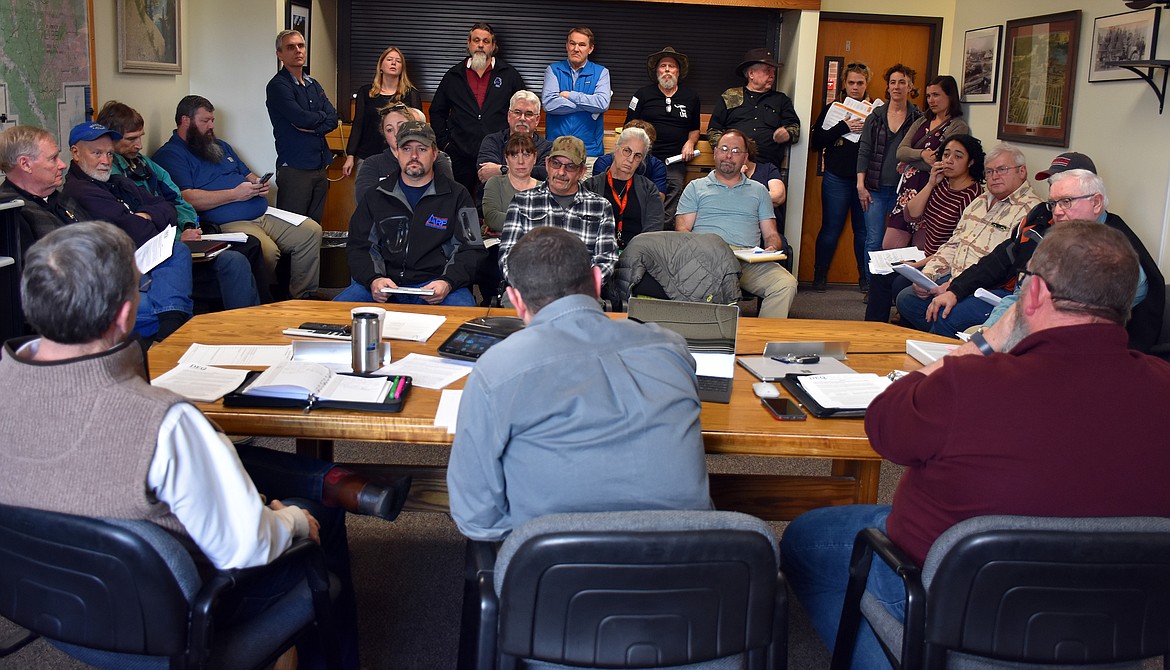EPA delays handoff of Superfund site oversight to DEQ
A time beset by worry for local officials claimed a moment of respite on March 30.
Relief came in the form of a joint press release from the EPA and Montana Department of Environmental Quality announcing postponement of EPA’s transfer to DEQ of responsibility for two operable units of the Libby Superfund Site.
The transfer of the Operation and Maintenance responsibilities for Operable Unit 4 and Operable Unit 7 had been set for April 1 — a date one local official wryly noted was April Fool’s Day.
The postponement was attributed by the two environmental agencies to restrictions on personal contact and communication tied to the COVID-19 pandemic.
State Rep. Steve Gunderson, R-Libby, said March 31 that he believes the postponement was a prudent decision by EPA and DEQ. Gunderson is a member of the Libby Asbestos Superfund Advisory Oversight Committee, or LASOC. The committee has pressed DEQ for details about what sorts of sampling and cleanup scenarios would be eligible for funding through state or federal funds.
“The additional time will allow more thought to be put into the important points LASOC continues to stress, as they are highly important to the community,” Gunderson said.
Operable Unit 4 includes residential, commercial and public properties in and around Libby. Operable Unit 7 includes the same array of properties in Troy.
Lincoln County officials had expressed concerns for weeks, long before COVID-19 became a fierce generator of anxiety, that too many questions remained unanswered for the transfer to proceed.
One key concern revolved around how DEQ would handle new demands for sampling for asbestos contamination and associated cleanup. Local officials have long sought reassurances from EPA and DEQ that residents of the region won’t be hit with costs or liabilities linked to emerging situations that require additional sampling or cleanup of the asbestos that is a legacy of vermiculite mining in the region. Asbestos fibers can embed in lung tissue and cause fatal diseases.
DEQ initially ruled out using state-held funds for certain scenarios that the county, along with most members of the Libby Asbestos Superfund Oversight Committee, felt should be funded.
Shaun McGrath, DEQ’s director, is another member of that committee. As is Mark Peck, chairman of both the Libby Asbestos Superfund Oversight Committee and the Lincoln County Board of Commissioners.
McGrath and Peck have sparred about DEQ’s leaning toward denying funding for some sampling and cleanup activities.
Concerns about COVID-19 led to cancellation of a March 18 public meeting in Libby of the Libby Asbestos Superfund Oversight Committee.
Peck said recently that DEQ and the oversight committee have made progress toward finding common ground.
The EPA placed the Libby and Troy areas on the Superfund National Priorities List in October 2002. In 2009, EPA declared a public health emergency for the Superfund site because of the high incidence in the region of asbestos-related disease.
EPA has drafted an Operation and Maintenance Plan for Operable Unit 4 and Operable Unit 7. EPA accepted public comment on the draft through Feb. 6.
The agency has not yet released a final version for public review.
“Right now we are integrating comments from Montana DEQ on the final Operations and Maintenance Plan and are hopeful we will have it uploaded to the EPA website next week, or potentially the week after,” said Beth Archer, a community involvement coordinator for EPA Region 8, in a March 30 email.
Meanwhile, once the EPA transfers responsibility for the two operable units DEQ becomes the primary agency in charge of the Operation and Maintenance phase, which is designed primarily to protect the cleanup remedy completed by EPA and its contractors.
The Montana Legislature established the Libby Asbestos Superfund Advisory Team in 2017. It later became the Libby Asbestos Superfund Oversight Committee.
In addition to Peck, McGrath and Gunderson, committee members include George Jamison of Lincoln County’s Board of Health and State Sen. Mike Cuffe, R-Eureka.
Committee members have said they believe the millions of dollars available in federal and state dollars for Operation and Maintenance should be adequate to pay for any sampling or cleanup required going forward.


